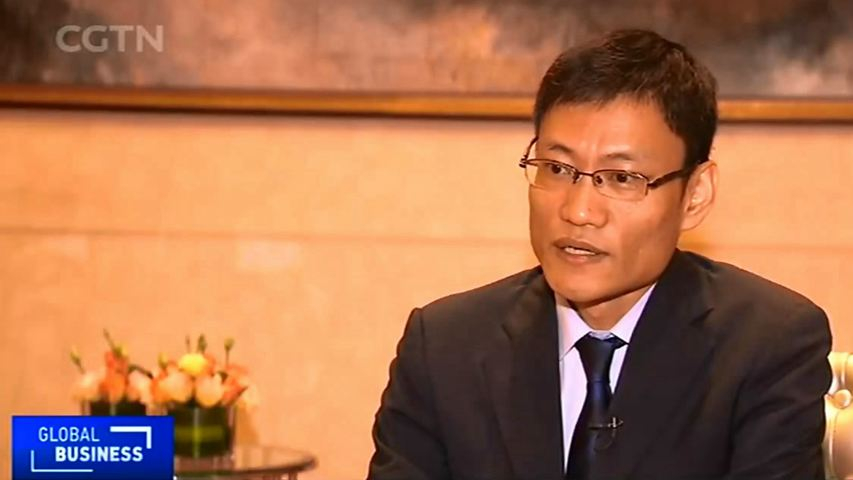

In previous reports and latest estimates, S&P Ratings has kept its forecast that China's growth could withstand the challenges of the trade war, and also speaks highly of the country’s policymaker for rebalancing the economy to achieve high-quality growth.
In an interview with CGTN, Shaun Roache, Asia-Pacific Chief Economist of S&P Global Ratings, said the trade war between the U.S. and China will likely have a minimal direct macroeconomic effect on China in the near future. “For example, China’s exports to the U.S. came for less than 2.5 percent of the country’s GDP, so it’s not going to change a lot of GDP growth.”
Some argued that the ongoing trade tensions complicate China’s difficult economic transition to a more balanced and less debt-dependent economic model. However, Roache considers that China actually did a great job in transforming to high-quality growth amid the fluctuant external challenges.
He further elaborated that “We’re perhaps a little concerned about how productivity growth is slowing in China, there’s a need to make sure productivity growth continues to support the overall economy. That will mean more reform, more opening up in certain sectors, and also means reforming the service sectors that contribute so much to China’s GDP growth.”
But S&P cautioned that longer-term consequences for global supply chains led by the trade conflict are growing.
“China is tremendously competitive in technology products. China is a very efficient place to do business. You can tell that from the share of high value-added products among China’s exports is very high. If firms want to relocate their supply chain from China to other places, it’ll be very costly.” Roache added.
Meanwhile, S&P stated that the trade war’s impact on Chinese companies is "small and manageable."

Li Chang, the director of Corporate Ratings from S&P Global Ratings, speaks with CGTN. /CGTN Photo
“Most of our rated issuers could absorb the tariff hike, as state-owned enterprises make up 46 percent of their rated China portfolio, and the property sector comprises 22 percent,” Li Chang, the director of Corporate Ratings from S&P Global Ratings told CGTN.
Li further detailed that export-oriented companies have been enhancing management and optimizing the structure of spending to offset the external risk.
“SOEs are predominantly in sectors with limited direct U.S. exposure such as commodities, utilities, infrastructure, and transport; while the property sector relies on domestic demand, and those companies who rely more on export already showed their capacity to handle the external risks by enhancing their management, better manage their spending. “
Although many are concerned about the volatility of the RMB exchange rate, Li is full of confidence by saying that Chinese companies are now well experienced in tackling the challenges that came with China's gradual currency reform since 2015.

Copyright © 2018 CGTN. Beijing ICP prepared NO.16065310-3
Copyright © 2018 CGTN. Beijing ICP prepared NO.16065310-3